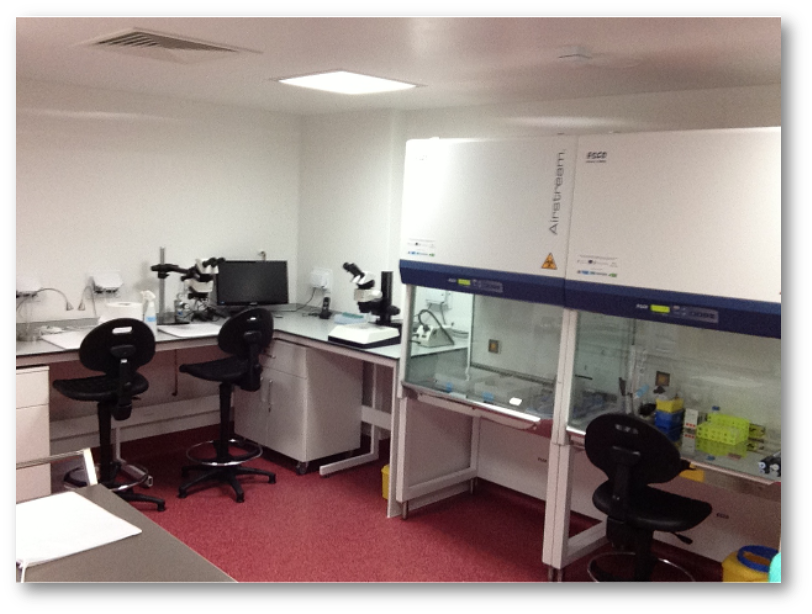About Us
In 2024, Airmeith Bioscience evolved from Transgenics TCD to explore new corners of in vivo preclinical research. The original facility was established in 2011 at Trinity College Dublin, by Professor Vincent Kelly, as an enabling resource for the higher education sector that bridged our ever-increasing knowledge of the DNA code to basic-research discovery in human health, disease and therapeutics. This was made possible through equipment and infrastructure grants from the Science Foundation Ireland and the Higher Education Authority. Since then, it has expanded its offering and carried out countless projects for clients from Academia and Industry. Now, as Airmeith Bioscience, we are excited to expand our services and explore new opportunities both with Higher education Institutes as well as industry partners in Ireland, the UK and Europe.
Our state-of-the-art facility itself has specific opportunistic pathogen free (SOPF) status, with a vast rage of specialist equipment and IVCs including RTP-isolators for the housing for germ-free models, surgical suite with incubators, microinjectors, stereomicroscopes and class II cabinets and CASA (Computer Assisted Sperm Analysis) image analysis systems. Access to tissue culture laboratories (up to Cat III), fully equipped histochemistry, confocal microscopy and flow cytometry suites allow for comprehensive downstream analysis in your end-to-end project. The facility is continually evolving in the technologies we provide and we welcome your suggestions on how we can accelerate your research efforts.







Airmeith Bioscience has experience in developing numerous genetically altered mouse and cell line models from gene knockouts, point mutations, protein tagging to conditional and inducible gene expression and humanised models, as detailed below. These have been used to investigate gene function and therapeutic targets, to test small molecule and genetic therapies and to establish controllable models of gene down/up-regulation. We have developed novel genetic alterations directly on established transgenic models. We have implemented end-to-end studies on neurological and autoimmune models of disease and subcutaneous tumour models. Learn more about some our projects below!
